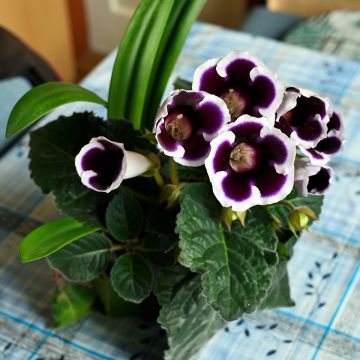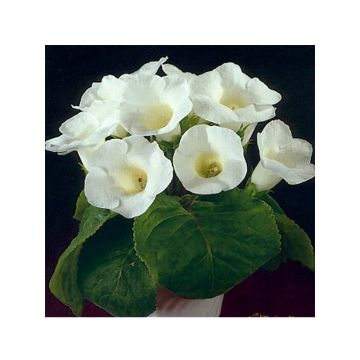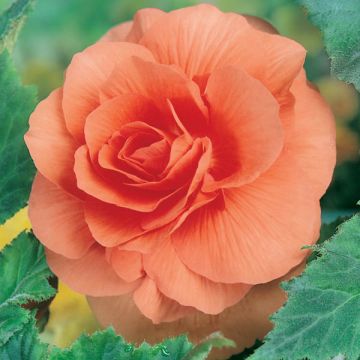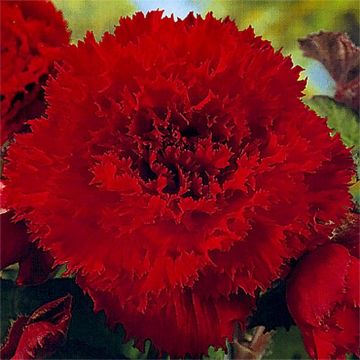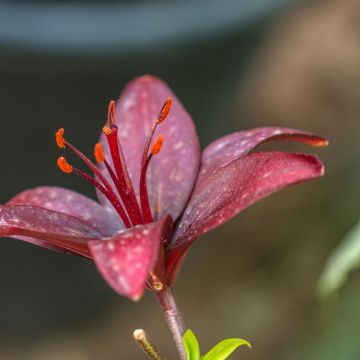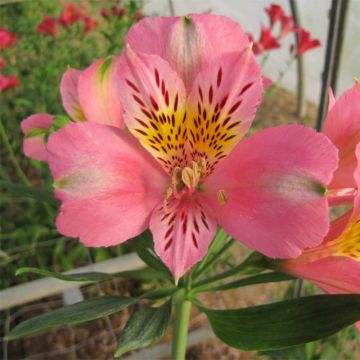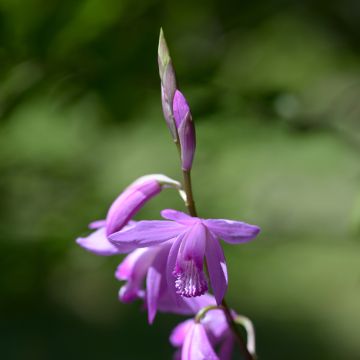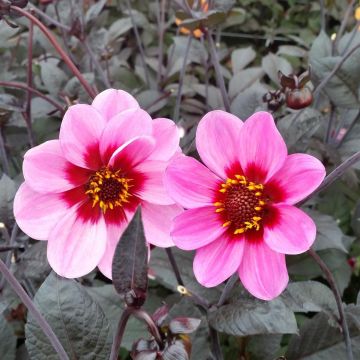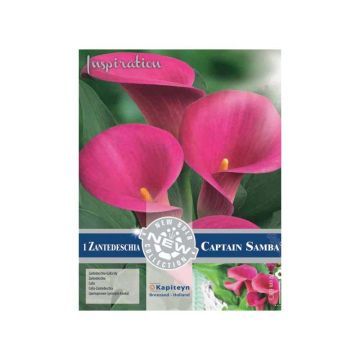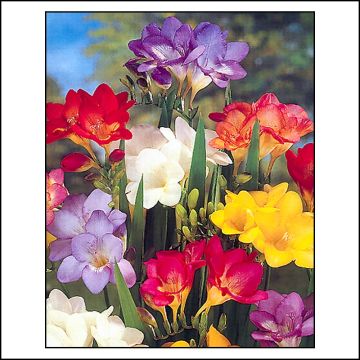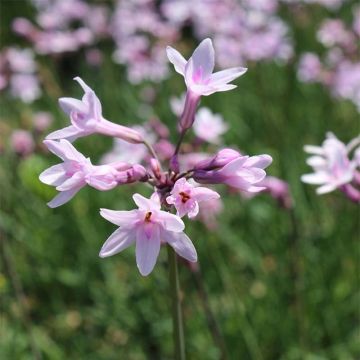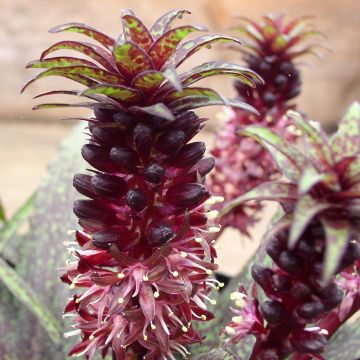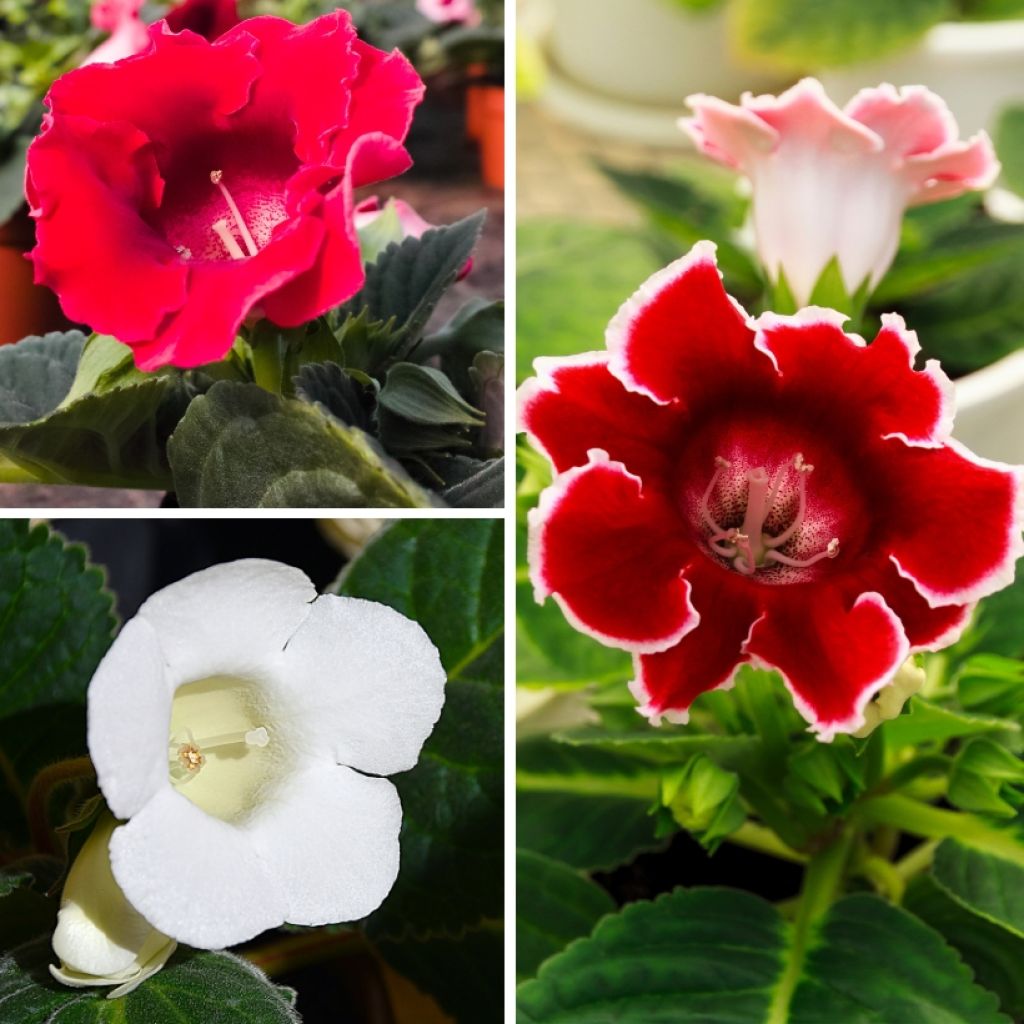

Red and white Gloxinia collection
Red and white Gloxinia collection
Gloxinia speciosa Etoile de Feu, Mont Blanc, Kaiser Friedrich
Florist's Gloxinia, Showy gloxinia, Gloxinia
This item cannot be shipped to the selected country
Delivery charge from €5.90
More information
Delivery charge from €5.90
More information
Schedule delivery date,
and select date in basket
This plant carries a 6 months recovery warranty
More information
We guarantee the quality of our plants for a full growing cycle, and will replace at our expense any plant that fails to recover under normal climatic and planting conditions.
From €5.90 for pickup delivery and €6.90 for home delivery
Express home delivery from €8.90.
Does this plant fit my garden?
Set up your Plantfit profile →
Collection items (3 plants)
Description
Explore the magnificence of Gloxinia with our exclusive collection featuring Gloxinia 'Fire Star', 'Mont Blanc', and 'Kaiser Friedrich'. Each of these bulb varieties promises stunning summer blossoms. Renowned for their spectacular blooms and lush velvety dark green foliage, these compact plants reach a height of 30 to 35 cm and thrive in pots in semi-shaded positions. They prefer slightly acidic to neutral soil that stays moist from spring to late summer and then dries out in winter.
Included in the collection:
-
1 Gloxinia 'Fire Star': This variety captivates with its scarlet, intense red flowers, and striking contrast against the dark green foliage. With flowers reaching up to 10 cm in diameter, it makes a bold statement in any floral arrangement.
-
1 Gloxinia 'Mont Blanc': Distinguished by its graceful white flowers, this variety exudes elegance and serenity as delicate petals complement the dark foliage in a perfect contrast.
-
1 Gloxinia 'Kaiser Friedrich': Uniquely combining red and white, this variety features majestic bi-coloured flowers that will enchant enthusiasts of subtle shades.
To plant your Gloxinia collection, opt for spring planting in semi-shaded pots or indoors for early blooms. Space each bulb at least 20 to 30 cm apart when planting and bury them to a depth of about 5 cm. Consider alternating the varieties to create a harmonious colour scheme, keeping to one or two plants per pot, depending on the pot size.
Gloxinia are not only striking indoor plants but are also resilient and easy to care for during the winter in a dry environment, even indoors. Their theatrical appearance sets them apart from other plants, making them ideal for displays in planters and on shaded window sills. They serve as a perfect replacement for geranium in areas where direct sunlight is limited. Find out more about gloxinias here.
Plant habit
Flowering
Foliage
Botanical data
Gloxinia
speciosa
Etoile de Feu, Mont Blanc, Kaiser Friedrich
Gesneriaceae
Florist's Gloxinia, Showy gloxinia, Gloxinia
Cultivar or hybrid
Other Gloxinias
Planting and care
The florist's Gloxinia is a frost-sensitive plant, but it thrives in an ideal temperature of around 21°C during summer. It should be given this same temperature in spring for its growth to resume, which is why it is commonly cultivated indoors.
It is perfectly possible to take it outside as soon as it is warm enough. While Gloxinia are averse to high temperatures that dry out the air, it needs light to flourish, without being exposed to direct sunlight, especially in summer. This plant enjoys a humid environment and partial shade. If you grow it indoors, it will be good to spray water on the leaves (not on the flowers, which would be damaged) or to place it on a bed of clay beads or stones in a tray filled with water.
Watering should be done twice a week or more during flowering, and then gradually reduced until it is completely stopped when the foliage disappears and the rhizome goes into dormancy. Weekly liquid fertiliser mixed in watering water will be beneficial in summer to encourage flowering.
When the above-ground parts of the florist's Gloxinia have withered, store the pot in a warm, dry place (15°C) until the following spring, when you will repot it in rich and light potting soil.
Planting period
Intended location
Care
This item has not been reviewed yet - be the first to leave a review about it.
Bulbs to grow in pots
Haven't found what you were looking for?
Hardiness is the lowest winter temperature a plant can endure without suffering serious damage or even dying. However, hardiness is affected by location (a sheltered area, such as a patio), protection (winter cover) and soil type (hardiness is improved by well-drained soil).

Photo Sharing Terms & Conditions
In order to encourage gardeners to interact and share their experiences, Promesse de fleurs offers various media enabling content to be uploaded onto its Site - in particular via the ‘Photo sharing’ module.
The User agrees to refrain from:
- Posting any content that is illegal, prejudicial, insulting, racist, inciteful to hatred, revisionist, contrary to public decency, that infringes on privacy or on the privacy rights of third parties, in particular the publicity rights of persons and goods, intellectual property rights, or the right to privacy.
- Submitting content on behalf of a third party;
- Impersonate the identity of a third party and/or publish any personal information about a third party;
In general, the User undertakes to refrain from any unethical behaviour.
All Content (in particular text, comments, files, images, photos, videos, creative works, etc.), which may be subject to property or intellectual property rights, image or other private rights, shall remain the property of the User, subject to the limited rights granted by the terms of the licence granted by Promesse de fleurs as stated below. Users are at liberty to publish or not to publish such Content on the Site, notably via the ‘Photo Sharing’ facility, and accept that this Content shall be made public and freely accessible, notably on the Internet.
Users further acknowledge, undertake to have ,and guarantee that they hold all necessary rights and permissions to publish such material on the Site, in particular with regard to the legislation in force pertaining to any privacy, property, intellectual property, image, or contractual rights, or rights of any other nature. By publishing such Content on the Site, Users acknowledge accepting full liability as publishers of the Content within the meaning of the law, and grant Promesse de fleurs, free of charge, an inclusive, worldwide licence for the said Content for the entire duration of its publication, including all reproduction, representation, up/downloading, displaying, performing, transmission, and storage rights.
Users also grant permission for their name to be linked to the Content and accept that this link may not always be made available.
By engaging in posting material, Users consent to their Content becoming automatically accessible on the Internet, in particular on other sites and/or blogs and/or web pages of the Promesse de fleurs site, including in particular social pages and the Promesse de fleurs catalogue.
Users may secure the removal of entrusted content free of charge by issuing a simple request via our contact form.




































